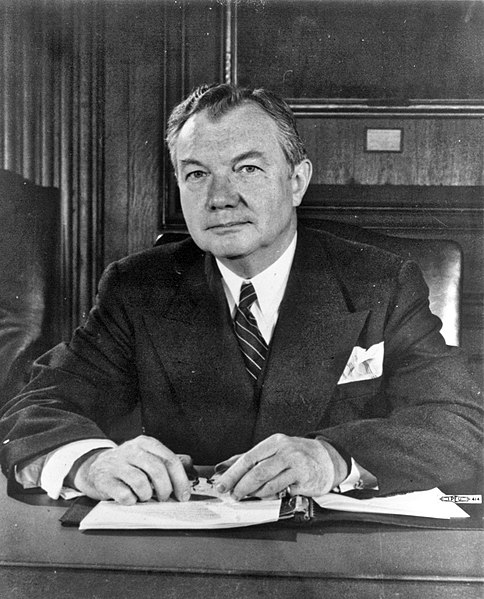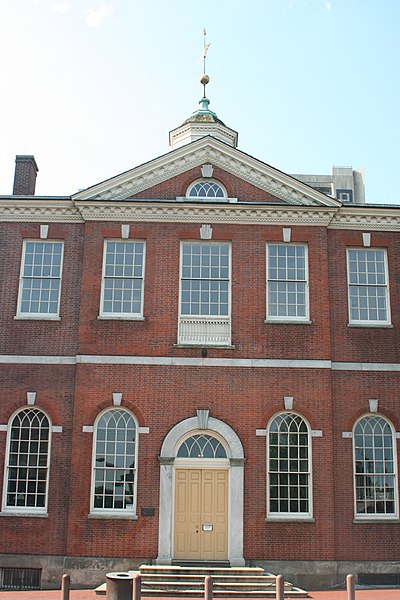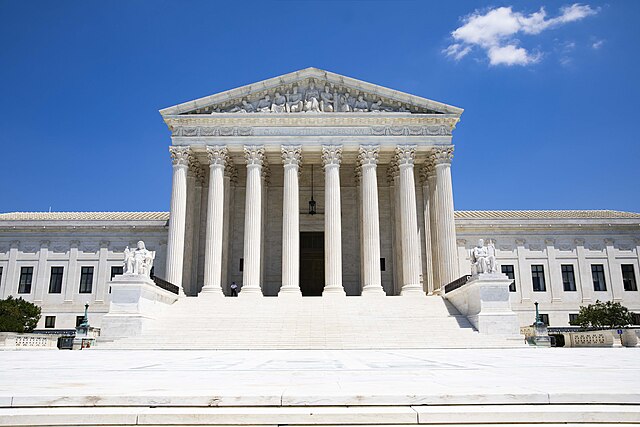Hugo Lafayette Black was an American lawyer, politician, and jurist who served as a U.S. Senator from Alabama from 1927 to 1937 and as an associate justice of the U.S. Supreme Court from 1937 to 1971. A member of the Democratic Party and a devoted New Dealer, Black endorsed Franklin D. Roosevelt in both the 1932 and 1936 presidential elections.
Black photographed by Harris & Ewing, 1937
Black during his Senate tenure
1937 poster protesting Black's appointment as Associate Supreme Court Justice due to his Klan background.
Black was involved in a bitter controversy with Justice Robert H. Jackson (shown above).
Supreme Court of the United States
The Supreme Court of the United States (SCOTUS) is the highest court in the federal judiciary of the United States. It has ultimate appellate jurisdiction over all U.S. federal court cases, and over state court cases that turn on questions of U.S. constitutional or federal law. It also has original jurisdiction over a narrow range of cases, specifically "all Cases affecting Ambassadors, other public Ministers and Consuls, and those in which a State shall be Party." The court holds the power of judicial review: the ability to invalidate a statute for violating a provision of the Constitution. It is also able to strike down presidential directives for violating either the Constitution or statutory law.
The Royal Exchange, New York City, the first meeting place of the Supreme Court
The court lacked its own building until 1935. From 1791 to 1801, it met in Philadelphia's City Hall, before moving to the Capitol Building in Washington, D.C.
John Marshall, chief justice from 1801 to 1835
The U.S. Supreme Court Building, current home of the Supreme Court, which opened in 1935








